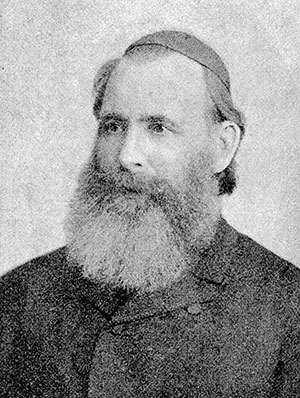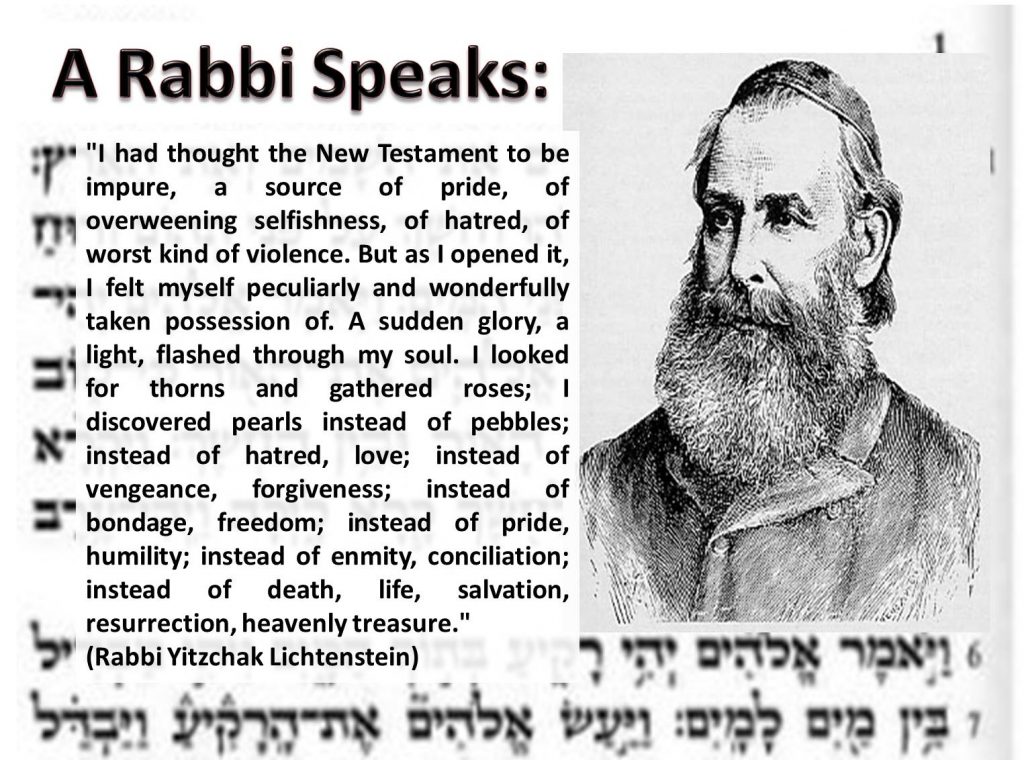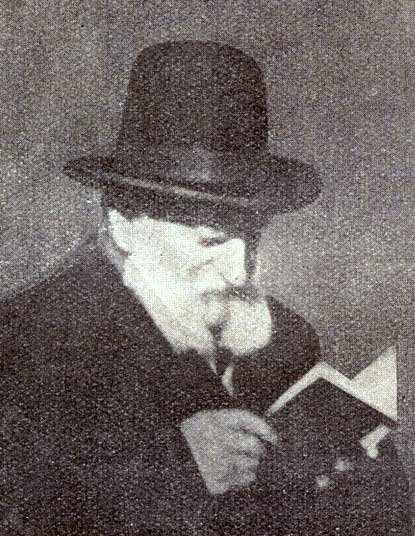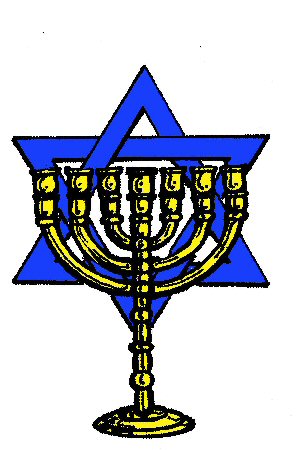Which Day is the Sabbath?
By
James Scott Trimm
Most Christians today profess that Sunday is the Sabbath. Others will say that the Sabbath has been done away with and replaced by Sunday “the Lord’s Day” as the day of worship for the “Church”(1). This belief has been widely accommodated even in the mainline of the Messianic Jewish movement. For example regarding Sunday worship Daniel Juster writes:
“…Sabbath is a day of crucial significance to Jewish identity.
The principle of weekly rest, worship and renewal is one
of universal significance. In this sense, the Sabbath
principle is a spiritual and humanitarian guide for all peoples.
Christians are free to incorporate this principle on Sunday
or other days. The seventh day Sabbath for Israel is
a special central sign of the Covenant between Israel and God.”
(Jewish Roots p. 195)
Even the First Fruits of Zion publication Take Hold says:
“There is nothing wrong with worshiping on Sunday.
There is nothing biblically wrong with going to a place
of worship on a Sunday and becoming as much involved
as one desires…. It [the Sabbath] can be honored
fully, even if one worships on Sunday or any other
day of the week…. we suggest you inform your friends…
that you do not have a problem with worshiping on a
Sunday just as long as they do not insist that it be
called ‘the Sabbath.’”
(Take Hold by Ariel and D’vorah Berkowitz pp. 239-240)
And David Stern writes in his Jewish New Testament Commentary:
“There are today all kinds of sects and denominations
that likewise create false guilt by non scriptural teaching–
for example… that observing one day rather than another
as a day of worship is a sin…”
(JNT Commentary p. 280)
Is it really true that the Sabbath is just a principle that gentile
Christians are free to incorporate on Sunday? Is it really only crucial
to Jewish identity? Is it really OK to make Sunday our day of
worship? Is it really unscriptural to teach that observing the seventh
day (Saturday) rather than Sunday as a day of worship is a sin? To
find the answer to this question, lets leave what all of these men have
said behind, and see what the Scriptures actually say about this issue.
Which day is the Sabbath? What day is our day of worship? Is it only
a principle? Is it only for Jews?
The Sabbath was Created
In speaking of the Sabbath Yeshua said:
And he said to them, The Sabbath was created
for a son of man, and not a son of man for the Sabbath.
Thus also, the Son of Man is the Adonai of the Sabbath.
(Mark 2:27-28)
Now there is a lot of information packed into this saying of Yeshua.
First of all Yeshua tells us that the Sabbath was “created”. When
Elohim created the universe, he did not just create space, but time as
well. The Sabbath was actually “created”. Now if we turn to
Colossians 1:16 we read:
And by him (Messiah) was created everything that
is in heaven and on earth, and all that is seen, and
all that is not seen…
(Col. 1:16)
Therefore the Sabbath was created by Messiah. Yeshua is Adonai of
the Sabbath because he created the Sabbath.
When did Messiah create the Sabbath? The answer is found in the
Torah:
And on the sixth day Elohim finished His work which
He made; and he rested on the seventh day from all His
work which he had made.
And Elohim blessed the seventh day, and set it apart;
because that in it He rested from His work which Elohim
in creating had made.
(Gen. 2:2-3)
Elohim finished his work on the sixth day, but he finished his creation
on the seventh day. Elohim created the Sabbath not by working, but
by resting. Notice that he blessed the seventh day and set it apart. Not just that seventh day, but every seventh day throughout time.
Don’t Tread on Me
The Seventh day was set apart from the time of creation. It was set
apart because it’s Creator was Adonai of the Sabbath and was
empowered as the Creator to make it set apart. What does it mean for something to be “set apart” (often translated “holy” or “sacred”)?
Well when YHWH addressed Moshe from the burning bush He told
Moshe “put off your shoes from off your feet, where the place you
stand is set apart ground.” (Ex. 3:5). This ground was set apart, it
belonged to YHWH not to man, it was to be treated with respect, it
was not to be trampled on. In the same way the Sabbath is set apart. It belongs to YHWH not to man, it is to be treated with respect and is not to be trampled on. As we read in Isaiah 58:13-14:
If you turn away your foot because of the Sabbath,
from pursuing your business on My set apart day;
and call the Sabbath a delight,
and the set apart of YHWH honorable;
and shall honor it, not doing your wonted ways,
nor pursuing your business, nor speaking thereof;
Then shall you delight yourself in YHWH,
and I will make you to ride upon the high places of the earth,
and I will feed you with the heritage of Ya’akov your father;
for the mouth of YHWH has spoken it.
(Is. 58:13-14)
The Sabbath is set apart because it is His set apart day. It is not our
day to do with as we please. We must not trample on the Sabbath and
treat it as our own, it belongs to YHWH.
Who was Sabbath Made for?
Another important question is “who was the Sabbath made for?”.
Some have taught that the Sabbath was first given as part of the
Mosaic Covenant on Mount Sinai and is for the Jews only. Daniel
Juster alludes to this idea when he says:
“…Sabbath is a day of crucial significance to Jewish identity.
The principle of weekly rest, worship and renewal is one
of universal significance. In this sense, the Sabbath
principle is a spiritual and humanitarian guide for all peoples.
Christians are free to incorporate this principle on Sunday
or other days. The seventh day Sabbath for Israel is
a special central sign of the Covenant between Israel and God.”
(Jewish Roots p. 195)
But what does Messiah say? Who was the Sabbath made for? Why
did YHWH rest on the Sabbath… was He tired? Clearly He was not
tired as we read that He “faints not, neither is weary” (Is. 40:28). So
although he rested on the Shabbat from his work, this was to set the
example for us, he did not need to rest so he did not create the Sabbath for himself. Messiah said:
…The Sabbath was created
for a son of man, and not a son of man for the Sabbath.
Thus also, the Son of Man is the Adonai of the Sabbath.
(Mark 2:27-28)
The one who created the Sabbath tells us who he created the Sabbath
for. He did not create the Sabbath for the Jews only but he created the Sabbath for “a son of man” (all men). When the commandment to
keep the Sabbath was given at Sinai (Ex. 20:8) YHWH said
“Remember the Sabbath…” How could YHWH ask them to
remember something they had never heard of before? In fact the
children of Israel were already observing the Sabbath in Exodus 16
before the ten commandments were given in Exodus 20. The Sabbath
transcends the Mosaic Covenant.
However even if the Sabbath had been part of the Mosaic Covenant, it would not have meant that the Sabbath was only for Jews. The Torah says that “One Torah shall be to him that is home born, and unto the stranger that sojourns among you.” (Ex. 12:49). Yeshua sent his Jewish talmidim (disciples) out to “teach all the goyim (gentiles)…
and teach them to observe all that I have commanded you.” (Mt.
28:19-20).
The Sabbath was not created simply for “the Jews” but for all
mankind. Thus when there was a debate over whether gentiles needed to be circumcised to be saved, the Jerusalem assembly commented:
For Moshe, from the first generations, had proclaimers
in every city in the synagogues, who read him on every
Sabbath.
(Acts 15:21)
They assumed that gentile believers would be going to synagogue and hearing “Moses” (the Torah; the Five Books of Moses) read every
Sabbath.
The Sabbath was created and set apart for all mankind at the time of
creation. It was therefore kept by such as Adam, Enoch, Noah and
Avraham.
Who Done It?
So if the Sabbath was created and set apart by Messiah at the time of
creation, who changed the day of worship to Sunday?
Many people have been misled into believing that Constantine was
responsible for the corruption and Gentilization of Christianity and
moving the day of worship to Sunday.
On 7 March 321, Constantine I did in fact decree that Sunday was to
be observed as the Roman day of rest saying:
On the venerable day of the Sun let the magistrates and people
residing in cities rest, and let all workshops be closed. In the
country however persons engaged in agriculture may freely and
lawfully continue their pursuits because it often happens that
another day is not suitable for grain-sowing or vine planting;
lest by neglecting the proper moment for such operations the
bounty of heaven should be lost.
While Constantine certainly added to the apostasy of early
Christianity, he was not the first. It was in fact Ignatius of
Antioch who rebelled against the Jerusalem Council, usurped their
authority, seceded from Judaism, declared the Torah to have been
abolished, replaced the Seventh Day Sabbath with Sunday worship and founded a new, non-Jewish religion which he named “Christianity”.
Paul said to the Ephesians on his last visit to them:
Watch, therefore, over your nefeshot
and over the flock which the Ruach HaKodesh
has appointed you overseers [bishops]
that you feed the assembly of Messiah,
which he purchased by his blood.
I know that after I am gone
fierce wolves will enter in among you
without mercy upon the flock.
And also from among you there will rise up men speaking
perverse things, so that they might turn away the talmidim
to follow after them.
(Acts 20:28-30)
Paul seems to indicate that after his death leaders would begin to
rise up from the overseers [Bishops] in his stead that would draw
people to follow themselves and draw them away from Torah. In fact
Paul died in 66 C.E. and the first overseer (Bishop) of Antioch to
take office after his death was Ignatius in 98 C.E.. Ignatius
fulfilled Paul’s words precisely. After taking the office of Bishop
over Antioch Ignatius sent out a series of epistles to other
assemblies. His letters to the Ephesians, Magnesians, Trallianns,
Romans, Philadelphians and Smyrnaeans as well as a personal letter
to Polycarp overseer of Smyrnaea have survived to us.
The Ancient Nazarene Historian and commentator Hegesippus (c. 180 CE) writes of the time immediately following the death of Shim’on, who succeeded Ya’akov HaTzadik as Nasi of the Nazarene Sanhedrin and who died in 98 CE:
Up to that period (98 CE) the Assembly had remained like a
virgin pure and uncorrupted: for, if there were any persons who
were disposed to tamper with the wholesome rule of the
proclaiming of salvation, they still lurked in some dark place of
concealment or other. But, when the sacred band of Emissaries
had in various ways closed their lives, and that generation of
men to whom it had been vouchsafed to listen to the inspired
Wisdom with their own ears had passed away, then did the
confederacy of godless error take its rise through the treachery
of false teachers, who, seeing that none of the emissaries any
longer survived, at length attempted with bare and uplifted
head to oppose the proclaiming of the truth by proclaiming
“knowledge falsely so called.”
(Hegesippus the Nazarene; c. 185 CE; quoted by Eusebius in
Eccl. Hist. 3:32)
Hegisippus indicates the apostasy began the very same year that
Ignatious became bishop of Antioch!
Up until the time of Ignatius, matters of dispute that arose at
Antioch were ultimately referred to the Jerusalem Council (as in
Acts 14:26-15:2). Ignatius usurped the authority of the Jerusalem
council, declaring himself as the local bishop as the ultimate
authority over the assembly of which he was bishop, and likewise
declaring the same as true of all other bishops and their local
assemblies. Ignatius writes:
…being subject to your bishop…
…run together according to the will of God.
Jesus… is sent by the will of the Father;
As the bishops… are by the will of Jesus Christ.
(Eph. 1:9, 11)
…your bishop…I think you happy who are so joined to him,
as the church is to Jesus Christ and Jesus Christ is to the
Father… Let us take heed therefore, that we not set ourselves
against the bishop, that we may be subject to God….
We ought to look upon the bishop, even as we would
upon the Lord himself.
(Eph. 2:1-4)
…obey your bishop…
(Mag. 1:7)
Your bishop presiding in the place of God…
…be you united to your bishop…
(Mag. 2:5, 7)
…he… that does anything without the bishop…
is not pure in his conscience…
(Tral. 2:5)
…Do nothing without the bishop.
(Phil. 2:14)
See that you all follow your bishop,
As Jesus Christ, the Father…
(Smy. 3:1)
By exalting the power of the office of bishop (overseer) and
demanding the absolute authority of the bishop over the assembly,
Ignatius was actually making a power grab by thus taking absolute
authority over the assembly at Antioch and encouraging other Gentile overseers to follow suit.
Moreover Ignatius drew men away from Torah and declared the Torah to have been abolished, not only at Antioch but at other Gentile assemblies to which he wrote:
Be not deceived with strange doctrines;
nor with old fables which are unprofitable.
For if we still continue to live according to the Jewish Law,
we do confess ourselves not to have received grace…
(Mag. 3:1)
But if any one shall preach the Jewish law unto you,
hearken not unto him…
(Phil. 2:6)
It is also Ignatius who first replaces the Seventh Day Sabbath with
Sunday worship, writing:
…no longer observing sabbaths, but keeping the Lord’s day
in which also our life is sprung up by him, and through
his death…
(Magnesians 3:3)
Having seceded from the authority of Jerusalem, declared the Torah
abolished and replacing the Sabbath with Sunday, Ignatius had created a new religion. Ignatius coins a new term, never before used, for this new religion which he calls “Christianity” and which he makes
clear is new and distict religion from Judaism. He writes:
let us learn to live according to the rules of Christianity,
for whosoever is called by any other name
besides this, he is not of God….
It is absurd to name Jesus Christ, and to Judaize.
For the Christian religion did not embrace the Jewish.
But the Jewish the Christian…
(Mag. 3:8, 11)
By the end of the first century Ignatius of Antioch had fulfilled
Paul’s warning. He seceded from Judaism and founded a new religion
which he called “Christianity”. A religion which rejected the
Torah, and replaced the Seventh Day Sabbath with Sunday Worship.
Wasn’t Yeshua Raised on Sunday?
The reason most Christians give for observing Sunday as the day of
worship is that Sunday is the day that Messiah was raised from the
Dead. The well known Dispensationalist Theologian F.F. Bruce in
answering the question “Why do Christians observe Sunday… instead of Saturday?” writes:
… we need not look for a reason for that when we
consider that our Lord’s resurrection took place
on that day.
(Answers to Questions; F. F. Bruce; p. 242)
Now some Sabbatarians have argued that the resurrection was not on Sunday but on Saturday, but that is not really the point. Sabbath
keepers are guilty of having allowed Sunday keepers to change the
subject. The question is not “which day was Messiah resurrected?”
because there is not one word in the Scriptures about observing that
day as the day of worship in place of the Sabbath. The only question
before us is “which day is the Sabbath?” and does man have authority
to make another day set apart and transplant the day of worship to that other day?
Is Sunday Worship Mentioned in the “New Testament”?
Absolutely not. Sabbath is repeatedly represented as the day of
worship (Acts 13:14-15, 42-44; 15:21; 16:12-15; 18:1-14). However
there are three texts which Sunday keepers have cited to support
Sunday keeping. F. F. Bruce cites Acts 20:7; 1Cor. 16:2 and Rev. 1:10
as supposed examples of Sunday keeping in the “New Testament”.
Let us examine each of these:
Acts 20:7 “And on the first day of the week, when we were assembled
to break bread, Paul spoke with them because the next day he was
ready to depart, And he continued to speak until the middle of the
night.”
In fact this meeting cannot refer to a Sunday morning “church service”
because it says “he continued to speak until the middle of the night”
(20:7). Certainly we are not to believe that Paul was so long winded
as to have spoken for well over twelve hours! Clearly this was an
evening meeting. This is also evidence in the next verse which states
“there were many lamps burning in the upper room in which they were assembled” (20:8). Jewish days run from evening to evening (Gen. 1:5-31; Lev. 23:27, 32). (Thus the Sabbth runs from sundown Friday until sundown Saturdy). An evening meeting on the “first day of the week” by Jewish reckoning would be what we call Saturday night. In fact Jews have always and still do gather on Saturday night for a service called Havdalah. Havdalah is a service held to mark the end of the Sabbath and initiate the beginning of the week.
Paul had been resting on the Sabbath and was prepared to leave at
daybreak (i.e. “the next day”). This usage of the phrase “the next day”
or “tomorrow” to refer to daybreak rather than the next calendar day is common in ancient Jewish usage (Gen. 19:34 for example).
1Corinthians 16:2 On every first of the week, each man from you in
his home, let him lay aside and keep that which he is able, lest when I
should come then collections will occur.
This is another passage which F. F. Bruce (and other Sunday Keepers)
cite as a supposed “Sunday Worship” service. However there is
nothing in 1Cor. 16:2 to indicate a Sunday meeting is involved. In fact
the Aramaic text of 1Cor. 16:2 says plainly htybb “in his home”.
Unfortunately the Greek translator rendered this with par eautw “by
himself” or “at home”. Many English translations from the Greek
have omitted this phrase entirely. Surprisingly F. F. Bruce, who cites
this passage as support for Sunday worship, admits in his commentary that this was not taking place in a Sunday assembly at all. He writes about this verse:
Nor were the individual sums to be taken to church
and handed over to the community treasurer: each
member is to put something aside par’ heauto,
‘at home’, and store it up there.
(1 and 2 Corinthians; F. F. Bruce; p. 158)
In one book Bruce cites 1Cor. 16:2 as evidence of a Sunday Church
service, then in his own commentary to the same verse he admits that
this passage takes place in individual homes and that the “sums” (more likely it was food) were never even “taken to church”.
This passage is simply telling us that on the first day of each week, the Corinthians were to start out their work week by setting aside
whatever food they are able to so that no collection would need to be
made at the last minute when Paul arrived.
Revelation 1:10 And I was in the spirit on the first [day] of the week…
The Aramaic has “first [day] of the week”. The Greek translator
rendered this “the Lord’s Day”. There is no worship service involved
in this passage. The event took place at the time of the firstfruits
offering, which always occurs on the day after a Sabbath during
Passover (Lev. 23:9-14) it begins the counting of seven seeks (forty
nine days) until Shavuot (Pentecost) (Lev. 23:15-22). The Book of
Revelation is filled with firstfruits and Passover imagery (the lamb, the firstborn etc.). After telling is this was the first day of the week, the text tells us that Yochanan sees seven menorah’s of gold (1:12) (each menorah has seven branches 7×7=49). These were representing the 49 days counted from the firstfruits offering on the first day of the week during Passover, until Shavuot.
What Would Yeshua Do?
A common T-shirt in Christian circles today says WWJD “What
Would Jesus Do?” The implication is that we should act as Yeshua
acted. As the Scripture says:
He who says, I am in him, ought to conduct himself
according to his conduct.
(1Jn. 2:6)
So how did Yeshua conduct himself regarding the day of worship?
The Scriptures tell us:
And he entered the Synagogue, on the day of
the Sabbath, as he was accustomed.
(Luke 4:16)
Paul himself followed this adage himself saying “Be you followers of
me, even as I also am of Messiah” (1Cor. 11:1) thus we also read of
Paul that he was also accustomed to going to Synagogue on the
Sabbath (Acts 17:1-2).
The ball is now in your court. I heve faithfully presented the Scriptures to you. Is it really true that the Sabbath is just a principle that gentile Christians are free to incorporate on Sunday? Is it really only crucial to Jewish identity? Is it really OK to make Sunday your day of worship? Is it unscriptural to teach that observing Sunday rather than the seventh day (Saturday) as a day of worship is a sin? You now know that that the answer to all of these questions is “no”. The Sabbath was created for you. Will you conduct yourself according to his conduct?
(1) For a scriptural understanding of the word “Church” see the “What do you Mean… ‘Church’?”
We need your help today! We need to raise at least $395 by the end of the day today (11/20/24) to cover bills pending in our account tonight.
Do not expect that the established religious denominations are going to be reformed and accomplish this paradigm shift. They are to set in their ways to be of any use to Elohim. To the contrary the established religious leaders are the single greatest deterrent to the promotion of the truth today.
We cannot do this work alone, but if we work together we can accomplish so much. So don’t forget to support this work with your contributions, tithes and offerings.
You make this work possible. Please help us bring the message of Torah and Messiah to a lost world and create Scripture study materials for believers.
Now is time to step up to the plate!
Donations can be sent by Paypal to donations@wnae.org.
You can now donate thru PayPal, Zelle or Go Fund Me!
Click HERE to donate









